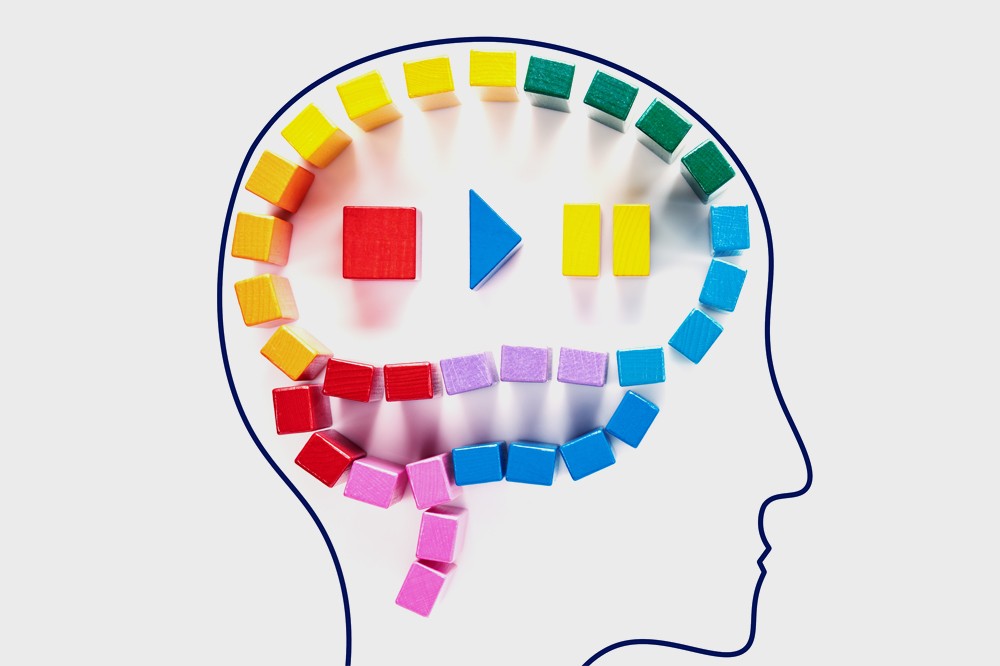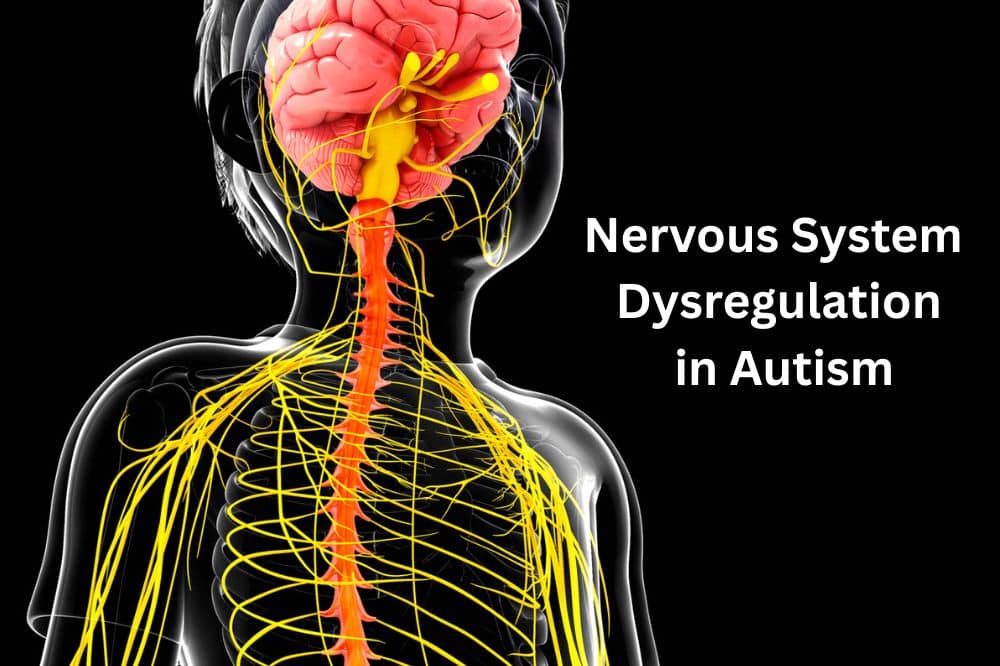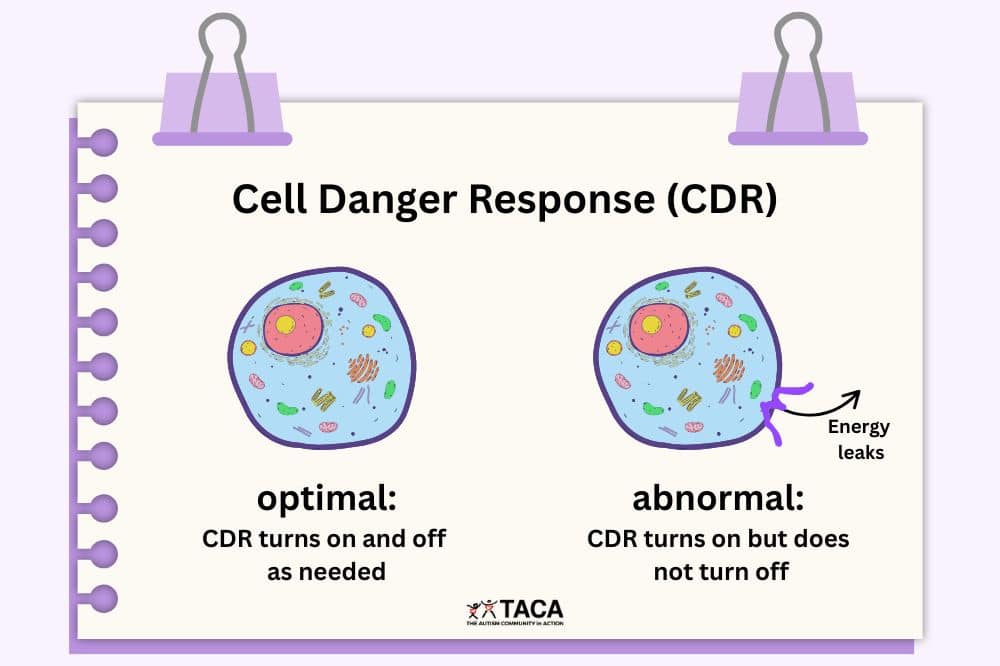Cerebral Folate Deficiency in Autism

All contents of this resource were created for informational purposes only and are not intended to be a substitute for professional advice, diagnosis, or treatment. Always seek the advice of your physician, therapist, or other qualified health providers with any questions or concerns you may have.
Folate (vitamin B9) is very important to brain development. Current research is revealing that many kids with autism have low folate in their brains. This condition, called Cerebral Folate Deficiency, is treatable.
Why is Folate Important?
Folate supports the metabolism of purines and pyrimidines, which are the building blocks of RNA and DNA, and they are needed to make energy properly.
What is Cerebral Folate Deficiency (CFD)?
Cerebral Folate Deficiency (also known as CFD) is a fairly newly identified disorder in which there is low 5-MTHF (5-methyltetrahydrofolate) in the cerebrospinal fluid (CSF) but normal (or even elevated) 5-MTHF in the blood.
5-MTHF is the bioavailable form of folate.

What are The Symptoms of Cerebral Folate Deficiency?
- Irritability and Anxiety
- Poor sleep
- Gross motor problems or problems with coordination
- Tics
- Seizures (including absence seizures)
- If the child has untreated CFD, seizures may start at puberty
- Problems with vision
- Developmental delay and/or slowing of typical development
- Smaller head circumference (but certainly not always)
- Rett Syndrome maybe in indicator of CFD
- Depression
- *Not all these symptoms are seen in kids with CFD

What Causes Cerebral Folate Deficiency?
There are several different potential causes of CFD:
1. Folate Receptor Autoantibodies (FRAAs)
Autoimmune problems can cause the body to produce Folate Receptor Autoantibodies (FRAAs). These FRAAs block the transport of folate into the cerebral spinal fluid.
FRAAs are being found at an alarming rate in children with autism. 71% of people with autism have autoantibodies that block folate from getting in the cell.
The test checks for two types of autoantibodies:
- Blocking autoantibodies (that BLOCK folate from getting into the cell)
- Binding autoantibodies (that clump together and therefore make it more difficult to adhere to the folate receptor.)
- This 2023 paper discusses the higher the binding autoantibodies, the better the response to leucovorin (prescription high-dose folinic acid).
In addition, lower levels of folate in the brain are associated with higher blocking FRAA titers. Children with autism are 19 times more likely to have folate receptor autoantibodies (that block folate from getting to the brain) than typically developing children.
A blood test can determine if your child has FRAAs. It is important to note that a Folate Receptor Autoantibody Test cannot tell you whether or not your child has CFD. Only a lumbar puncture can do that. However, testing for FRAs in the blood can give you an idea if this autoimmune problem is an issue for your child. If it is, there could be a functional folate deficiency.
Here is the lab test information.
Note: Your child can have a negative FRA test, and still have cerebral folate deficiency. This is because there are other possible causes of CFD.
NEW INFORMATION about PANS and Folate Receptor Autoantibodies!
Research shows:
- People diagnosed with PANS or PANDAS have Folate Receptor Autoantibodies (FRAAs)
- 63.8% of kids with PANS/PANDAS had either the blocking and/or blinding FRAAs
- Autism was associated with a 0.76 lower binding titer
- Severe tics were associated with a 0.90 higher binding titer
2. Mitochondrial Dysfunction or Disease
The body needs energy to push folate into the cells. If the mitochondria are not working at optimum levels, many functions of the body are impacted. Research shows that mitochondrial dysfunction is very common in autism. More information of Mitochondrial dysfunction in autism here.
3. Genetics
Varying gene mutations and polymorphisms can impact folate transport into the cell and brain.
4. Reasons we do not know of yet and that are still being studied.
Types of Folate
- Folic acid – oxidized supplement form
- Folate (DHF) – comes from food
- Folinic acid (Leucovorin) – more bioavailable form of folic acid
- 5MTHF (or L-Methylfolate) – Has a methyl donor attached to make it the most bioavailable form of folate
How is CFD Diagnosed?
By definition, CFD is a lack of folate in the cerebral spinal fluid, so the only definitive way to diagnose it is with a lumbar puncture (spinal tap). Since many parents are hesitant to order a lumbar puncture (LP) because it’s so invasive, many functional medicine doctors are starting treatment without a LP to see if kids improve.
My child’s blood level of folate is normal or high. Does this rule out CFD?
No. Folate levels in the blood do not reflect blood levels in the brain. In fact, high levels in the blood may reflect that the folate is not being properly utilized by the body.
What kind of doctor do I need to see to discuss CFD?
- A pediatric neurologist that understands the connection between CFD and ASD and how to treat it. Please bring studies when you see a neurologist. There are some articles written by medical doctors and studies linked at the bottom of this TACA article.
- A functional medicine doctor trained in how to treat autism medically. Read about Finding a Doctor here.

What is the Treatment for CFD?
In addition to dietary changes, treatment options for CFD include prescription medication, or supplementation with high-dose methyfolate, or sometimes a combination both. However, all the research uses Leucovorin to treat CFD.
Prescription Medications and Supplementation
Currently, the treatment for CFD is Leucovorin (prescription high dose calcium folinic acid). Per studies, the recommended dose is anywhere from 0.5mg/kg to 2.0mg/kg.
Some doctors choose to use Deplin, which is prescription strength L-methylfolate. This is dosed differently than leucovorin. Deplin has many additives (including dairy), but there are other high dose methylfolate options available over-the-counter.
Some doctors prescribe a combination of Leucovorin and Deplin to treat CFD.
The idea is to get the level of 5MTHF in the Cerebral Spinal Fluid (CSF) up to mid-range (78-82). “Normal” range is shown as anywhere from 40-120, but some kids will have symptoms and seizures when their levels are below mid-range.
Doctors studying and researching CFD want to see a level between 78-82 for optimal function. Increasing levels of 5MTHF in the cerebral spinal fluid can take months if not years, so improvement is usually very slow and steady once you start treatment.
Deplin is also used to treat anxiety and depression. These can be of symptoms of a folate deficiency.
Should I supplement folic acid?
No. Folic acid use is not advised.
Folic acid is the oxidized form of folate. It can block folate receptors in some kids, making problems worse.
Will smaller amounts of folinic acid or L-5MTHF help if my child has CFD?
Small amounts of folinic acid or L-5MTHF are used to support methylation, but are not necessarily enough to boost levels of folate in the cerebral spinal fluid. If your child has CFD, your doctor can help find the correct dose of Leucovorin for your child.
Do folate levels change as a child ages?
Yes. A recent study suggests that as a child with autism gets older, their level of folate decreases. Therefore, kids are MORE likely to need folate as they grow older.
This study released in June of 2016, shows levels of 5MTHF decreasing in ASD kids as they age.
As was stated above, functional medicine doctors want the level of 5MTHF in the CSF to be 78-82 (mid-range). In this study, the first lumbar puncture on this group of kids showed 7% of them to have LOWER than 40 nmol/L. We know kids can have seizures before they hit that level. At follow up visits two years later, their levels of 5MTHF in their CSF had dropped even further.
Dietary Changes
A dairy-free diet is also part of the treatment for Cerebral Folate Deficiency because mammal’s milk blocks folate receptors.
Take-Aways
- Levels of 5MTHF in the cerebral spinal fluid of ASD kids tend to decrease with age.
- Even if the child does not have Cerebral Folate Deficiency, they may still have a functional folate deficiency.
- When kids hit puberty, fast growth taxes the mitochondria. They need more folate to meet these demands. If there is not enough folate, the result may be seizures, aggression, or regression.
- Cerebral Folate deficiency is TREATABLE!
More Information to Take to Your Doctor
- Cerebral Folate Deficiency, Folate Receptor Alpha Autoantibodies and Leucovorin (Folinic Acid) Treatment in Autism Spectrum Disorders: A Systematic Review and Meta-Analysis (2021)
- Cerebral Folate Deficiency in Autism Spectrum Disorders by Dr. Frye and Dr. Rossignol
- The Folate Factor by Dr. Rossignol and Dr. Frye
- Folinic Acid Improves Verbal Communication in Children with Autism and Language Impairment (2018)
- Cerebral Folate Receptor Autoantibodies in Autism Spectrum Disorder (2013)
- Effectiveness of methylcobalamin and folinic acid treatment on adaptive behavior in children with autistic disorder is related to glutathione redox status. (2013)
Need more help?
Join TACA’s private Facebook group for parents moderated by TACA staff to help parents through the autism journey.




